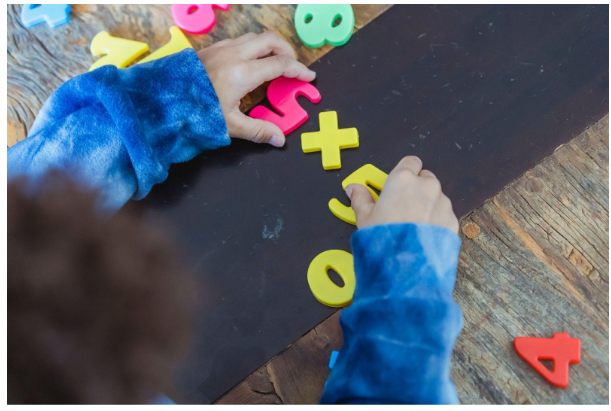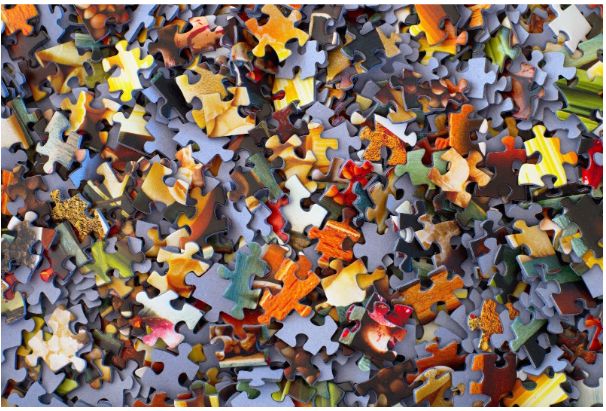5 Ways You Can Utilize Play-based Learning In Improving Kids’ Math Skills
Research suggests that active kids perform better. Why not integrate learning and play?The early years foundation stage (EYFS) is an ideal time to introduce children to mathematical concepts by having them practice them via play. You may be under the impression that play and mathematics are at opposing ends of a spectrum. One involves solving equations and following rules; the other consists of breaking those rules and having fun being creative. On the contrary, math and play have many similarities with young children's development. These activities involve discovering fascinating new information and investigating fascinating new ideas.

When it comes to learning math through play, there is a wide variety of math-related activities from which you can pick. To get you started, here are some examples of entertaining math games and activities that are tried and tested as a great way to teach little ones some math.
Jigsaw Puzzles
A jigsaw puzzle is a great way to teach young kids math without even realizing it! Jigsaw puzzles help children develop problem-solving skills and can also be used to reinforce concepts in math.
Many different puzzles for children are geared toward teaching math skills. For example, some jigsaw puzzles can be completed with only one piece, which is excellent for very young children who need more practice with the concept of matching shapes.
In addition, jigsaw puzzles can be used to create simple math problems like 3+2 or 5-3. With these types of problems, you can take a picture of the item in question and do a puzzle. Then, you can ask your child questions about the items pictured in the puzzle as you put them together. For example, if there is a picture of three, two, and five apples, you could ask your child how many apples there are altogether.

Playdough Mats
Math can be fun and engaging using playdough mats. Young children like molding playdough into all sorts of forms and this medium may be used to instruct on various subjects. To help kids practice counting and adding, try giving them playdough to form numbers or a picture of a flower and telling them to glue on a particular number of petals. The notion of doubles may be investigated with great success with Playdough Mats, which are packed with entertaining graphics.
Sand And Water
Playing with sand and water may be an excellent method to learn about and practice abstract mathematical ideas like comparisons, amounts, volumes, and many more. Building with sand and moving sand and water between containers are excellent ways to practice mathematics, but few kids realize they're learning without even trying.
You should provide them with various containers and implements so they may playfully investigate these ideas as much as possible. Use challenge cards or prompt phrases in your Sand Area to put the kids to the test and encourage them to learn and grow. Sand Area Word Posters that illustrate the concept of "half full" are one way to help kids get a handle on fractions.
Stories, Songs, And Rhymes
Furthermore, math songs and rhymes, such as "Five Little Monkeys Jumping on the Bed" or "Ten Green Bottles," are entertaining and memorable to get youngsters singing or telling stories, all while teaching them crucial ideas related to mathematics.
Not only that, but you can leverage the characters and themes from these tales and nursery lullabies to inspire even more participatory play by including them in your games. To aid youngsters in their comprehension of addition and subtraction, you may, for instance, employ role-play masks or stick puppets to act out the events of each song or narrative.
Messy Play
Math can be a lot of fun to learn while playing messy play, which is why it's a good thing that this game exists. You may not believe it, but a mud kitchen can be the ideal setting for helping young children develop their arithmetic abilities and evaluating how well they are doing with those skills.
You can try teaching children arithmetic concepts via the use of mud recipes. For instance, you could ask kids to tally the number of pine cones or other components that go into making their mud pies. Children might also be asked to use numerals to depict the numbers.
Final Words
Play-based learning allows children to practice concepts most applicable in their everyday lives. It will enable them to not only get comfortable with counting and money and understand how they're related to the real world. Whether you're a parent or a teacher looking to engage kids in fun activities that help them learn math, there's no better way than through play.

